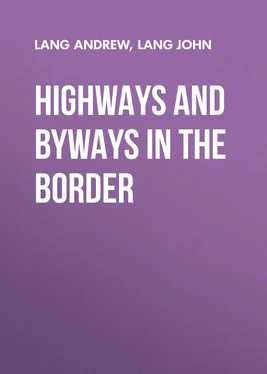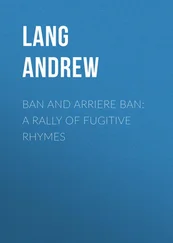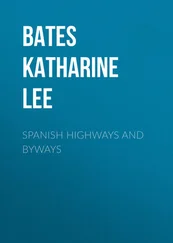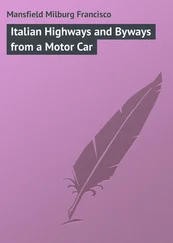Andrew Lang - Highways and Byways in the Border
Здесь есть возможность читать онлайн «Andrew Lang - Highways and Byways in the Border» — ознакомительный отрывок электронной книги совершенно бесплатно, а после прочтения отрывка купить полную версию. В некоторых случаях можно слушать аудио, скачать через торрент в формате fb2 и присутствует краткое содержание. Жанр: foreign_antique, foreign_prose, на английском языке. Описание произведения, (предисловие) а так же отзывы посетителей доступны на портале библиотеки ЛибКат.
- Название:Highways and Byways in the Border
- Автор:
- Жанр:
- Год:неизвестен
- ISBN:нет данных
- Рейтинг книги:4 / 5. Голосов: 1
-
Избранное:Добавить в избранное
- Отзывы:
-
Ваша оценка:
- 80
- 1
- 2
- 3
- 4
- 5
Highways and Byways in the Border: краткое содержание, описание и аннотация
Предлагаем к чтению аннотацию, описание, краткое содержание или предисловие (зависит от того, что написал сам автор книги «Highways and Byways in the Border»). Если вы не нашли необходимую информацию о книге — напишите в комментариях, мы постараемся отыскать её.
Highways and Byways in the Border — читать онлайн ознакомительный отрывок
Ниже представлен текст книги, разбитый по страницам. Система сохранения места последней прочитанной страницы, позволяет с удобством читать онлайн бесплатно книгу «Highways and Byways in the Border», без необходимости каждый раз заново искать на чём Вы остановились. Поставьте закладку, и сможете в любой момент перейти на страницу, на которой закончили чтение.
Интервал:
Закладка:
Just as ready as it had been in the fiercest days of Border warfare was now the response to the sudden call to arms. Over a country almost roadless, rural members of the various Yeomanry corps galloped through the mirk night, reckless of everything save only that each might reach his assembly point in time to fall in with his comrades. Scarce a man failed to report himself as ready for service – in all the Border I believe there were but two or three. And though it turned out that the alarm fires had been lit through an error of judgment on the part of one of the watchers, there is no doubt that to the bulk of the men who turned out so full of courage and enthusiasm that night, the feeling at first, if mixed with relief, was one of disappointment that they had had no chance of trying a fall with "Boney" and his veterans. The man who was the first to fire his beacon on that 31st of January was a watcher at Home Castle. Peering anxiously through the gloom, he imagined that he saw a light flare up in the direction of Berwick. It was in reality only a fire lit by Northumbrian charcoal-burners that he saw, and its locality was many points to the south of Berwick, but as the blaze sprang higher, and the flames waxed, the excited watcher lost his head, and, forgetting to verify the position, feverishly set a light to his own beacon and sent the summons to arms flying over the Border. Had it not chanced that the watcher by the beacon on St. Abb's Head was a man of cool temperament, all Scotland had been buzzing that night like a hornets' nest. This man, however, reasoned with himself that news of an invasion, if it came at all, must necessarily come from a coastal, and not from an inland station, and therefore he very wisely did not repeat the signal.
The spirit shown on the occasion of this false alarm, and the promptitude with which yeomanry and volunteers turned out, are things of which Borderers are justly proud. Many of the yeomanry rode from forty to fifty miles that night in order to be in time; and even greater distances were covered. Sir Walter Scott himself was in Cumberland when word of the firing of the beacons came to him, but within twenty-four hours he and his horse had reached Dalkeith, where his regiment was assembled, a distance of one hundred miles from his starting point. In one or two instances, where members of a corps chanced to be from home, in Edinburgh on private business, mother or wife sent off with the troop when it marched, the horse, uniform, and arms of husband or son, so that nothing might prevent them from joining their regiment at Dalkeith. The substance of the message then sent to her son by the widowed mother of the writer's grandfather, will be found in Sir Walter's Notes to The Antiquary . If in our day like cause should unhappily arise, if the dread shadow of invasion should ever again fall on our land, no doubt the response would be as eager as it was in 1804; the same spirit is there that burned in our forefathers. But of what value now-a-days are half-trained men if they come to be pitted against the disciplined troops of a Continental Power? Of no more avail than that herd of wild bulls that the Spaniards in 1670 tried to drive down on Morgan's Buccaneers at Panama.
Many a tale is still told of the events of that stirring night of 31st January, 1804. One of the Selkirk volunteers, a man named Chisholm, had been married that day; but there was no hesitation on his part. "Weel, Peggy, my woman," he said in parting with his day-old bride, "if I'm killed, ye'll hear tell o't. And if I'm no killed, I'll come back as sune as I can." A particularly "canny" Scot was another volunteer, whose mother anxiously demanded ere he marched if he had any money with him in case of need. "Na, na!" he said, "they may kill me if they like, but they'll get nae siller off me ."
A few cases of the white feather there were, of course; in so large a body of undisciplined men there could hardly fail to be some who had no stomach for the fight, but instances of cowardice were surprisingly few. One or two there were who hid under beds; and one youth, as he joined the ranks, was heard to blubber, "Oh, mother, mother, I wish I'd been born a woman." But of those who should have mustered at Kelso, only two out of' five hundred failed to answer to their names, and possibly they may have had legitimate cause for their absence. Many of the members of foot regiments were long distances away when the alarm was given. Of the Duns volunteers, for instance, two members were fifteen miles distant when the beacons blazed up. Yet they made all speed into the town, got their arms and accoutrements, marched all through the night, and fell in alongside their comrades at Haddington next forenoon. Many – all the men of Lessudden, for example – marched without uniforms. Anunpleasant experience had been theirs had they fallen, in civilian dress, into the hands of the enemy.
To return to Whitadder. – Some miles above Broomhouse we come to Cockburn Law, a conical hill of about 1100 feet in height, round three sides of which the river bends sharply. On the northern slope of the hill is the site, and what little remains to be traced, of Edinshall, a circular tower dating probably from the seventh century. According to the oid Statistical Account of the Parish, the walls of this tower, – Edwin's Hall, – measured in diameter 85 feet 10 inches, and in thickness 15 feet 10 inches, enclosing in their depths many cells or chambers. Their height must once have been very considerable, for even at date of the Statistical Account – the end of the eighteenth century – they stood about eight feet high, and were surrounded on all sides by a scattered mass of fallen stones. The ground around shows traces of having been fortified, but the tower itself probably was never a place of strength. The stones of which the building was constructed were large, and close fitting, but not bound together with mortar, which indeed was not in use in Scotland so early as the date of the building of Edinshall, – hence the tower was a quarry too convenient to be respected by agriculturists of a hundred years ago. Most of the material of the ancient build ing has been taken to construct drains, or to build "dry stane dykes." The "rude hand of ignorance" has indeed been heavy on the antiquities of Scotland.
Where the stream bends sharply to the left as one fishes up those glorious pools and boulder-strewn rapids, there stands a cottage not far removed from Edinshall, which on the Ordnance Survey maps bears the very un-Scottish name of Elba. It has, however, not even a remote connection with the place of exile of an Emperor. The learned would have us believe that the name is derived from the Gaelic "Eil," a hill, and "both," a dwelling. It may be so; but it seems much more likely that "Elba" is merely the Ordnance Survey people's spelling of the word "elbow," as it is pronounced in Scotland; the river here makes an extremely sharp bend, or elbow. Near Elba is an old copper mine which was worked to advantage by an English company midway in the eighteenth century. Abandoned after a time, it was reopened in 1825, but was soon again closed. Copper was not there in sufficient quantity to pay; probably it had been worked out before. Four or five miles from here we come to Abbey St. Bathans, a name which conjures up visions of peaceful old ruins nestling among whispering elms by clear and swift flowing waters. There is now, however, little of interest to be found. St. Bathans was originally a convent of Cistercian Nuns, with the title of a Priory, and was founded towards the end of the twelfth century by Ada, daughter of William the Lion. As late as 1833, the then recently written Statistical Account of the Parish says that the north and east walls of the church "still bear marks of antiquity," and that in the north wall is "an arched door which communicated with the residence of the Nuns"; but, says the Account, this door "is now built up."
Читать дальшеИнтервал:
Закладка:
Похожие книги на «Highways and Byways in the Border»
Представляем Вашему вниманию похожие книги на «Highways and Byways in the Border» списком для выбора. Мы отобрали схожую по названию и смыслу литературу в надежде предоставить читателям больше вариантов отыскать новые, интересные, ещё непрочитанные произведения.
Обсуждение, отзывы о книге «Highways and Byways in the Border» и просто собственные мнения читателей. Оставьте ваши комментарии, напишите, что Вы думаете о произведении, его смысле или главных героях. Укажите что конкретно понравилось, а что нет, и почему Вы так считаете.












